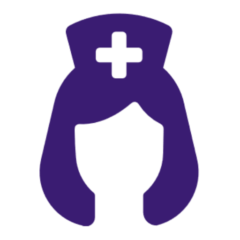It is not a secret that medical staff keep records about each patient. It guarantees quick access to the required information in case of repeated visits or some complaints.
The way of taking notes may be different. Everything depends on the situation. For example, if a case requires a fast reaction, it will be necessary to take written notes to guarantee emergency help as soon as possible. If a person has time (a non-emergency situation), computer fixing of the information will fit best because such notes are registered in the healthcare system and can be accessed by a patient.
What about nurses? Why must they take notes? How to do that smartly? Experts from https://www.customwritings.com provide 12 effective tips for writing nurses’ notes.
Tip#1. Do Everything on Time
It often happens that nurses have no time to jot down the information. They delay this task. Over time it will be hard to remember the most essential details. As a result, a report will contain misleading or fake information. It might result in the wrong treatment approach or complaints from patients.
Tip#2. Do Not Make a Mess
It is essential to follow some concrete structure. As a rule, personnel have blanks that they have to fill in. Such forms include personal data of patients, body mass, current health condition (blood pressure, allergies, body temperature, etc.). If a medical institution does not provide ready forms, it will be better to create them so as not to forget important information.
Tip#3. Use Abbreviations and Short Forms
A person who needs to jot down much information quickly is better to use abbreviations and short forms such as BMI, AVPU, BP, Fx, adm., etc. A person should discuss all alterations with the administration.
Tip#4. Do Not Complicate Things
Simple sentences and words are more helpful than long complex constructions with the overuse of shortenings, terms, and other details. Doctors and other nurses or midwives might make mistakes or lose precious time when trying to understand notes of low readability.
Tip#5. Write Briefly
Notes are not essays. They do not require adjectives, comparisons, metaphors, and other stylistic devices. One short but informative sentence is always better than a whole page of repetitions unless it is a must. For example, some diseases require a detailed description of symptoms to identify their seriousness and stage.
Tip#6. Don’t Repeat Yourself
One should not mention the same information in different blanks. It adds more work and more papers that make it hard to find the needed data quickly. Each sentence is to equal a summary, not a repetition.
Tip#7. Objectiveness is Your Must
It often happens that a nurse writes down information without even asking. For example, a medical worker might mention an approximate weight, blood pressure, and add some bad habits because of prejudice. Many medical workers often regard homeless people, representatives of some races, religious beliefs, and sexual orientation as those with some specific negative characteristics.
For example, Afro-Americans from the poorest districts are usually regarded as drug-dependent and alcohol-abused. Or medical personnel often regard Muslims as terrorists and refuse to treat them. So, nurses find excuses and mention them in blanks to prevent contact with such individuals. Such a decision might lead to criminal liability.
Tip#8. Mention Comments of Relatives
If a person is unconscious or has mental disorders, it will be necessary to interview relatives or friends. A nurse must record information to provide more useful data. It is essential to mention who has given details and how did they find out this information (Did they witness that? Have they heard that from someone else? etc). It is essential to jot down everything, but stress data that is more objective (witnessed).
Tip#9. Do Not Use Self-developed Terms and Words
People got used to some lexis, jargon, and dialects. Sometimes, it is hard to stay aside and use scientific terms and sentences when being in a hurry. One can use them in personal notebooks only. Later, it will be necessary to mention information in official protocols (but using standard language).
Tip#10. Find a Helper in Emergency Situations
Sometimes the system faces total collapse. It is a common case for regions with frequent earthquakes, group car accidents, and other traumatic events. In this case, it is better to find an assistant who can help with the data fixing. For example, a nurse asks for symptoms and provides pre-medical help while a scriber fills in gaps in the blank.
Tip#11. Write Distinctly and Clearly
People often have dreadful handwriting. As a rule, nurses must use typed letters to guarantee maximum clearness of the text. This tip is not necessary for those who use computers and tablets to fill in medical forms. Thus, a person must be careful with smart keyboards that have T9 options. The system usually provides hints and replaces words. So, it is necessary to be attentive.
Tip#12. Check the Patient’s Medical History to Prevent Unnecessary Questions
Sometimes nurses waste time on questions that are mentioned in a patient’s history. Doctors must learn everything quickly in some specific reactions and ASAP treatment such as blood transfusion and allergic attacks. So, useful questions only!
Nurses are responsible for correct notes with dates. Everything you do and decide to stop doing must be recorded. Otherwise, nobody will believe that you have done something at all. In case of complaints, there will be no facts to protect you.





